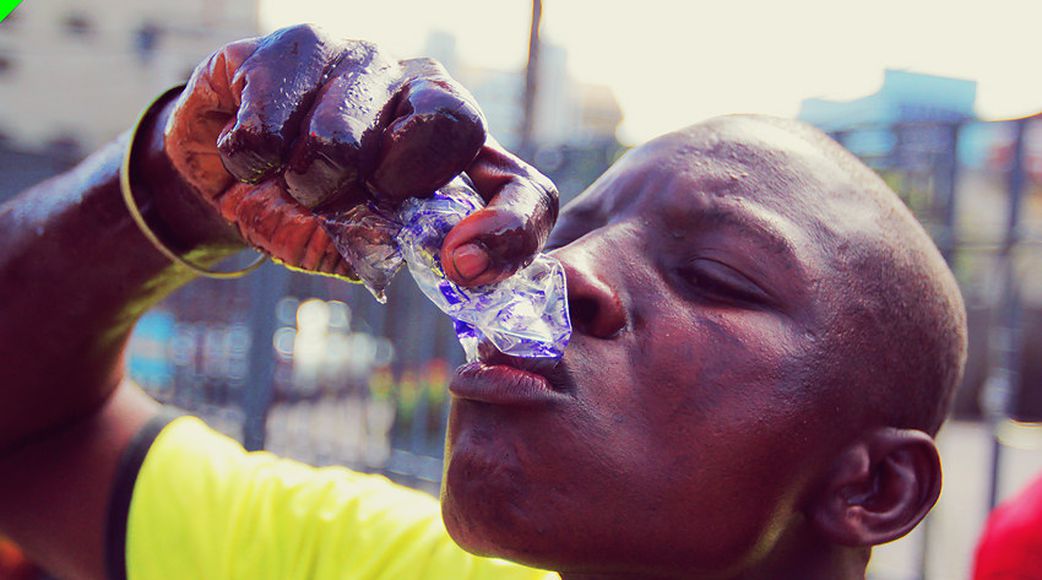LIFESTYLE

THE HIDDEN RISKS OF DRINKING "PURE WATER" – WHAT YOU NEED TO KNOW
It’s labeled “pure” right on the pack, so it’s gotta be safe, right?
If you live in Nigeria, chances are you’ve had at least one sachet of pure water today. It’s affordable, widely available, and refreshing when you get it from the right spot.
For many Nigerians, it’s the go to source for drinking water. But here’s the catch: how often do we actually stop to question how “pure” that "pure water" really is?
We’re not trying to alarm you, but many of us assume that because it comes in a sealed sachet, it’s automatically clean and safe. Unfortunately, that’s not always the case. Some of the water sold on the streets might actually be doing more harm than good. There’s a lot happening behind the scenes that rarely gets discussed.
1. Not all ‘pure water’ is NAFDAC approved
![Not all ‘pure water’ is NAFDAC approved [TheCable]](https://image.api.sportal365.com/process//smp-images-production/pulse.ng/13052025/d9f980eb-b9de-47f4-92ed-9fd92b6f7575.webp?operations=fit(1042:))
Just because it’s in a sachet doesn’t mean it’s legit. There are dozens of unregistered, unregulated brands flooding the market. Some of these producers operate out of small, unclean spaces with little to no filtration. They don’t go through proper health inspections or testing.
You might see a flashy label, but that doesn’t mean it has a NAFDAC number, or that the number is even real. Yes, some people actually print fake NAFDAC numbers on their sachets.
When you drink water from these sources, you’re exposing yourself to harmful bacteria, viruses, and even heavy metals that can cause diseases like typhoid, cholera, and diarrhoea.
2. Contamination during storage and handling
Even if the water was clean when it left the factory, how it’s handled afterwards makes a huge difference. Think about those sachets piled on the floor in open markets, exposed to dust, flies, and God-knows-what else.
)
A lot of vendors don’t store the water properly. You’ll see bags left in the sun for hours, thrown on dirty ground, or transported in filthy wheelbarrows and trucks. Heat can even make the plastic sachets release harmful chemicals into the water, especially when stored in hot environments for long periods.
3. Poor hygiene in production
Have you ever visited a small-scale pure water factory? Some of them don’t exactly scream “clean.” You’d be shocked at how some of these places look. Imagine dirty containers, unfiltered borehole water, and workers handling sachets with bare, unwashed hands.
Without proper filtration systems or regular testing, these small producers are basically packaging untreated water in sachets and selling it to the public. And because the sachets are sealed, people just assume it’s safe.
But contaminated water can carry dangerous microorganisms that can cause serious health issues. It's one reason why some people are always battling one stomach problem or the other.
4. Tearing sachets with your teeth? Bad idea!
![Don't tear pure water with your teeth [YouTube/FavourUremz]](https://image.api.sportal365.com/process//smp-images-production/pulse.ng/13052025/3e559062-78ea-4461-a1e3-22a8d2b0e0eb.jpg?operations=fit(1042:))
We’ve ripped open the sachet with our teeth and squeezed the water straight into our mouths. But have you ever thought about where that sachet has been? It's been touched by dozens of hands, dropped on the ground, stepped on, and exposed to dust and germs.
When you put that plastic directly in your mouth, you could be introducing harmful bacteria into your system. It sounds dramatic, but it’s true. A lot of mouth infections and stomach issues can actually come from dirty sachet surfaces.
Better to use clean scissors or wash the top of the sachet before drinking. It sounds extra, but your health is worth the small effort.
5. Typhoid and cholera
Many Nigerians battle typhoid like it’s a regular cold. But the truth is, these illnesses can be deadly, and contaminated water is a major cause.
Drinking unsafe water exposes you to a host of waterborne diseases. And while we’ve normalised popping antibiotics, the long-term damage to your gut and immune system is no joke. Also, over-relying on antibiotics leads to resistance, meaning over time, these drugs stop working when you really need them.
Look, we get it. Pure water is affordable, accessible, and sometimes the only option. But it's important to be smart about where and how you get it. Always check the brand, make sure it's NAFDAC-approved, and avoid sachets that look dirty, bloated, or poorly sealed.
)
If you can, go for bottled water from reputable brands or use a water filter at home. It might cost a little more, but your health is priceless. Don’t let a ₦50 sachet lead to a ₦50,000 hospital bill.
"This represents a significant development in our ongoing coverage of current events."— Editorial Board









